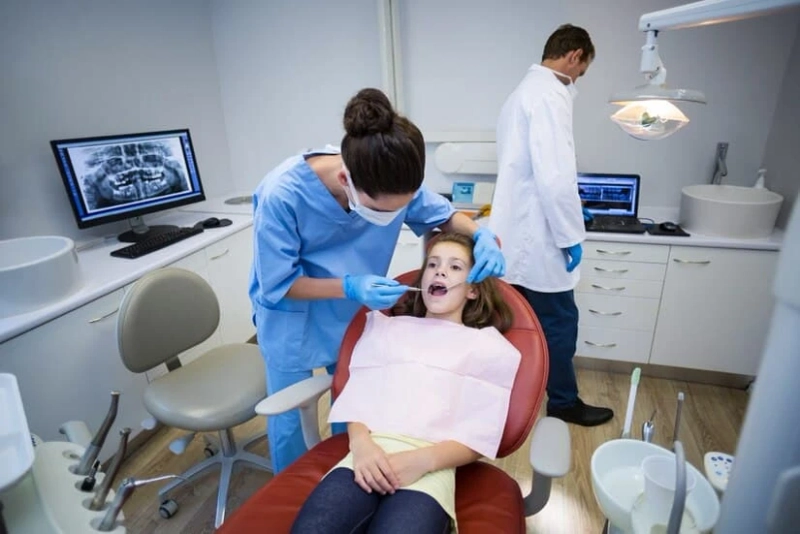Dental emergencies can strike at any moment, often leaving individuals in pain and uncertainty about what to do next. Whether it's a sudden injury during a sporting event or a severe toothache that strikes in the middle of the night, knowing how to handle these situations can make a significant difference in the outcome. Understanding the most common emergency dental clinic and their appropriate responses is vital for anyone looking to maintain their oral health and well-being.
1. Knocked-Out Tooth
One of the most alarming dental emergencies is a knocked-out tooth. This often occurs due to accidents or injuries, especially during physical activities. If a tooth is knocked out, the first step is to remain calm. Retrieve the tooth by the crown avoid touching the root as this can damage the delicate tissues. Rinse it gently with water if it’s dirty, but do not scrub or remove any attached tissue. If possible, place the tooth back into the socket, holding it in place by biting down on a clean cloth or gauze. If reinsertion isn’t feasible, place the tooth in a container of milk or saline solution and seek immediate care at an emergency dental clinic.
2. Severe Toothache
A severe toothache can be debilitating, often indicating an underlying issue such as tooth decay, an abscess, or gum disease. When experiencing such pain, it’s essential to avoid self-diagnosing or ignoring the symptoms. Over-the-counter pain relievers can provide temporary relief, but they don’t address the root cause. Rinsing the mouth with warm salt water can help reduce inflammation and cleanse the area. However, the most prudent course of action is to schedule an appointment with a dentist as soon as possible to assess the situation and provide necessary treatment.
3. Cracked or Fractured Tooth
Cracked or fractured teeth are common injuries that can occur from biting down on hard objects, experiencing trauma, or even from extensive teeth grinding over time. Signs of a cracked tooth can include sensitivity to temperature changes, pain while chewing, or visible fractures. Immediate care is crucial to prevent further damage. Rinsing the mouth with warm water and applying a cold compress to the outside of the cheek can help manage swelling. Seeking professional dental care promptly will allow a dentist to evaluate the extent of the damage and recommend appropriate treatment, which may include bonding, crowns, or even root canal therapy.
4. Lost Filling or Crown
The loss of a filling or a crown can be concerning, especially if it leads to discomfort or sensitivity. If a filling is lost, it can expose the tooth to further decay or injury. If a crown falls off, it may leave the tooth vulnerable. In either case, it’s advisable to avoid chewing on that side of the mouth and to keep the area clean. Temporary dental cement can be used to re-adhere the crown until professional help is available. In the case of a lost filling, it’s essential to see a dentist who can replace it promptly to minimize the risk of complications.
5. Abscessed Tooth
An abscessed tooth is a serious condition that occurs when bacteria infect the tooth's pulp, resulting in pus accumulation. Symptoms often include severe pain, swelling, and fever. This situation requires immediate attention, as an abscess can lead to systemic infection if not treated promptly. Rinsing the mouth with warm salt water can help alleviate some discomfort, but it is crucial to seek emergency dental care without delay. Treatment may involve draining the abscess, performing a root canal, or even extracting the affected tooth, depending on the severity of the infection.
6. Soft Tissue Injuries
Injuries to the gums, cheeks, or tongue can also be considered dental emergencies. These injuries often occur due to falls, sports injuries, or accidents involving sharp objects. Soft tissue injuries can bleed significantly and may cause pain and discomfort. To manage the bleeding, applying gentle pressure with a clean cloth or gauze can be effective. If the bleeding doesn’t subside after 10 minutes or if the injury appears severe, it’s essential to visit an emergency dental clinic for further evaluation and treatment. Proper care is crucial to prevent infection and promote healing.
7. Orthodontic Emergencies
For those undergoing orthodontic treatment, emergencies can arise, such as broken brackets or wires. These issues can cause discomfort and may impede the progress of treatment. If a bracket becomes loose or breaks, it’s essential to avoid playing with it, as this could worsen the situation. In case of a protruding wire, using a pencil eraser or a cotton swab can help push it back into place temporarily. Regardless, it’s crucial to contact an orthodontist as soon as possible to schedule a repair appointment.
Conclusion
Understanding common dental emergencies and knowing how to respond appropriately can make a significant difference in managing pain and preserving oral health. Whether it’s a knocked-out tooth, a severe toothache, or an injury to the soft tissues, timely intervention is key. Always remember that maintaining regular dental check-ups can help prevent many of these emergencies from arising in the first place.
For those facing dental emergencies, it’s essential to seek prompt care from a qualified professional. If you find yourself in need of immediate assistance, don’t hesitate to reach out to Clove Dental Ventura. Their expert team is ready to provide the care you need to address your dental emergency effectively and restore your smile. Don’t wait contact them today for a brighter, healthier tomorrow!


